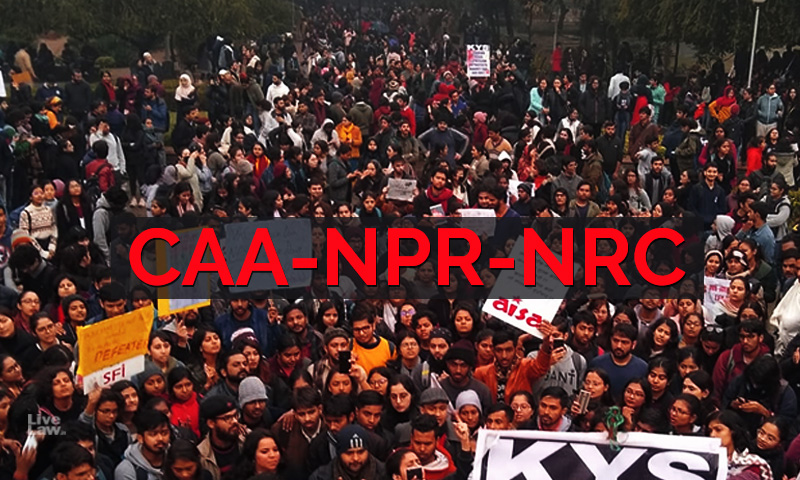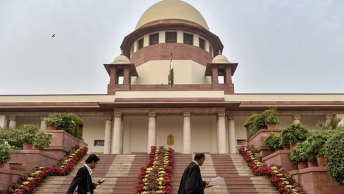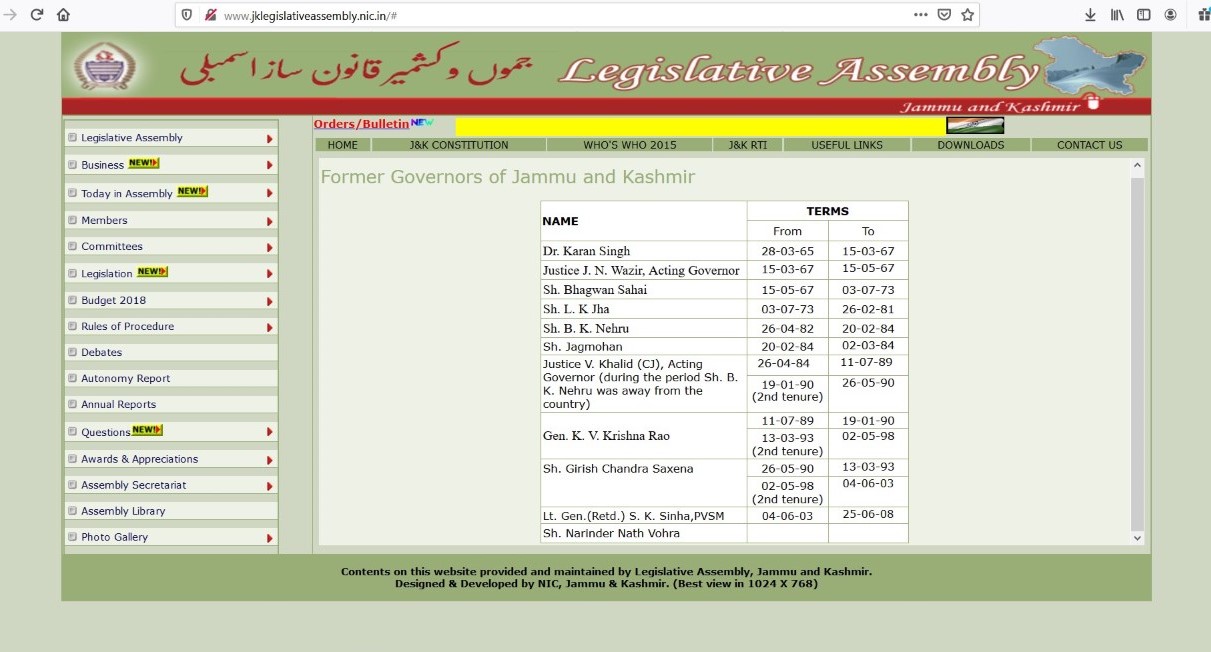A woman in Assam is determined not to be a citizen of India by the NRC. She seeks review by a Foreigners Tribunal. She faces a formidable task. She bears the burden of proving that she is a citizen of India. She will be given only 10 days in which to produce evidence in support of her case. And (as Amnesty International have reported) less than 10 percent of applicants to the Tribunal succeed. She will not be appearing before a judge, with a judge’s security of tenure; instead, members of the Tribunal are ‘bureaucrats or junior lawyers, hired by the government and paid generous salaries’. Tribunal members receive very limited training, are allegedly retained on the basis of how many appeals they have rejected and are subject to interference in the performance of their functions by the Government of Assam. And even if she proves that she is a citizen of India in a Foreigners Tribunal, another Tribunal may nonetheless rehear the case on another referral by the state and determine that she is not a citizen regardless.
Furthermore, as Amnesty International have extensively documented in their report Designed to Exclude: How India’s Courts Are Allowing Foreigners Tribunals to Render People Stateless in Assam, decision-making in the Foreigners Tribunals is deeply flawed: decisions are all too often vague, arbitrary and harsh. As Sagar has reported for The Caravan, lawyers for people referred to the Tribunals are given limited opportunities to cross-examine government officials regarding the circumstances of referral or their investigations into referred persons’ citizenship, and Tribunal members have overstepped their bounds to act in an inquisitorial, adversarial manner.
Documents are a key part of Foreigners Tribunal proceedings. Petitioners must provide documents proving that their ancestors came to India before 1971 and proving their ties to those ancestors. As Amnesty International have reported, this emphasis on documentary evidence has particularly severe consequences for women, who may lack documentation prior to their marriage (or otherwise documenting their ancestry). Documents are not admitted as evidence unless certified, despite protracted delay in difficulty in seeking certification. Further, minor contradictions or lapses in documentary evidence or the evidence of witnesses are given substantial weight in deciding whether a person seeking to prove their citizenship is telling the truth: Amnesty International record, in this regard, instances of individuals being rejected because they could not remember the Lok Sabha constituency in which their grandfather was registered in 1966 (leading the Tribunal to conclude that a 1966 voter list provided by the applicant was not genuine), or because they had not been registered to vote alongside other members of their household, or because they could not identify the voter serial number, holding number, and polling station number of their grandparents, or (commonly) because of minor variations in name and age – a discrepancy as to whether an ancestor was ‘Aper Ali Sheikh’ or ‘Afer Ali Sheikh’ or a petitioner was named ‘Khatija’ or ‘Khadija’.
There are close parallels between the serious flaws in how the Foreigners Tribunals decide cases and equivalent flaws in refugee status determination (the process of determining whether an asylum seeker is a refugee) (RSD) in other nations. As David A. B. Murray has written, the ‘surveillance of authenticity’ dominates contemporary RSD; decision-makers proceed upon fixed notions of what a refugee ought to seem like (both in terms of what they have experienced and how they express their experiences of persecution) and reject perceived deviances from that imagined norm, fuelled by the widespread conviction that ‘refugee claimants tell lies’. The surveillance of authenticity is hence not merely determining whether an individual is authentic, but enforcing a particular ‘authentic’ mode upon applicants (regardless of its relation to their lived experience) by prioritising certain forms of evidence or experience (as more ‘authentic’ than others) and penalising those whose experiences, or ability to relate experience, do not fit within a narrow mold. One sees this, for example, in the rejection of claims to fear harm based on religious persecution where an applicant’s experiences of spirituality are unorthodox or do not involve a detailed knowledge of their faith, or in the rejection of claims by members of sexual minorities which do not adhere to ‘expected gay narratives’ (even if those applicants belong to sexual minorities other than gay men).
Documents are particularly crucial in this regard. These include many of the same documents scrutinised in the NRC process, including identity documents and birth certificates. As Carol Bohmer and Amy Shuman have written, ‘[d]ocuments in the asylum process are treated as neutral, decontextualised objects’, treated as ‘the artifact necessary for being regarded as a legitimate asylum seeker’ – despite their dubious reliability as evidence (or the dubious relevance of the absence of documents) when produced and used ‘without regard to the circumstances that constrained political asylum applicants from acquiring them’, whether because of dysfunction in their countries of origin or simply because they are created in a very different context from that in which they are assessed in RSD.[1] This can lead, in practice, to rejection of documents for precisely the same reasons as the rejection of documents by Foreigners Tribunals: minor discrepancies or inconsistencies in names, dates or references; errors which are attributable to different transliterations or translations of the same terms; and allegations of fraud based on the absence of corroborative evidence even in circumstances where that evidence would be very difficult or impossible to obtain. A particularly absurd example can be found in an immigration judge’s decision impugned in Zhen Li Iao v Gonzales, 400 F.3d 530 (7th Cir 2005), in which the immigration judge commented adversely on a Falun Gong practitioner’s inability to provide evidence to corroborate her claims. As Posner J commented sardonically, ‘[a]n acephalous, illegal religious movement is particularly unlikely to issue membership cards’.
The assumed correspondence between ‘identities, events, and documents’ in the West, the assumption that documents are ‘a relatively neutral representation of identities and events’ and the assumption that forged or fraudulent documents ‘are considered to taint the character of anyone using them’ are not borne out by the lived experience of asylum seekers.[2] Bohmer and Shuman place this emphasis upon (even fetishisation of) documents within a Foucaultian context: an instance of the institutionalisation and control of bodies through documentation.
Which brings us back to the Foreigners Tribunals. As in RSD, the Foreigners Tribunals’ insistence upon documents and overemphasis on minor discrepancies in documents is not neutral. As in RSD, it is driven by an institutional scepticism and cynicism that people appearing before the Tribunals are likely to lie (the first assumption) and that documents are more reliable and more ‘objective’ than people (the second assumption). Both of these assumptions are strongly questionable: the first is inextricable from a poisonous, xenophobic political environment in which Muslims in Assam have been demonised and the second is utterly removed from the lived realities of the people appearing before the Tribunal. In RSD, scholars, litigators and judges have attempted to craft a jurisprudence and a body of scholarship that rejects these notions, in favour of greater sensitivity to the circumstances in which documents are produced and which accepts the inevitability of ‘innocent errors’, both from applicants and in the evidence on which they rely. Scholars, litigators and judges in India need to push back against these unfounded assumptions in the Foreigners Tribunals in the same way.
[1] Carol Bohmer and Amy Shuman, Political Asylum Deceptions: The Culture of Suspicion (2018) pp 46, 55 (Bohmer and Shuman).
[2] Bohmer and Shuman p 56.








Advocate Narender Singh is considered one of the Best Criminal Lawyers for Supreme Court of India. He has been practicing in the Supreme Court of India, High Court of Delhi, and Delhi district courts for 8 years and has a proven track record of success in representing clients in high-profile cases. He is dedicated to providing results-oriented legal services and has a team of highly qualified Indian advocates, attorneys, and legal advisers providing seamless legal services in all fields of law.
th8ll3
bi9uik
5ivm90
ert38w
dvntlc
j6rrfk